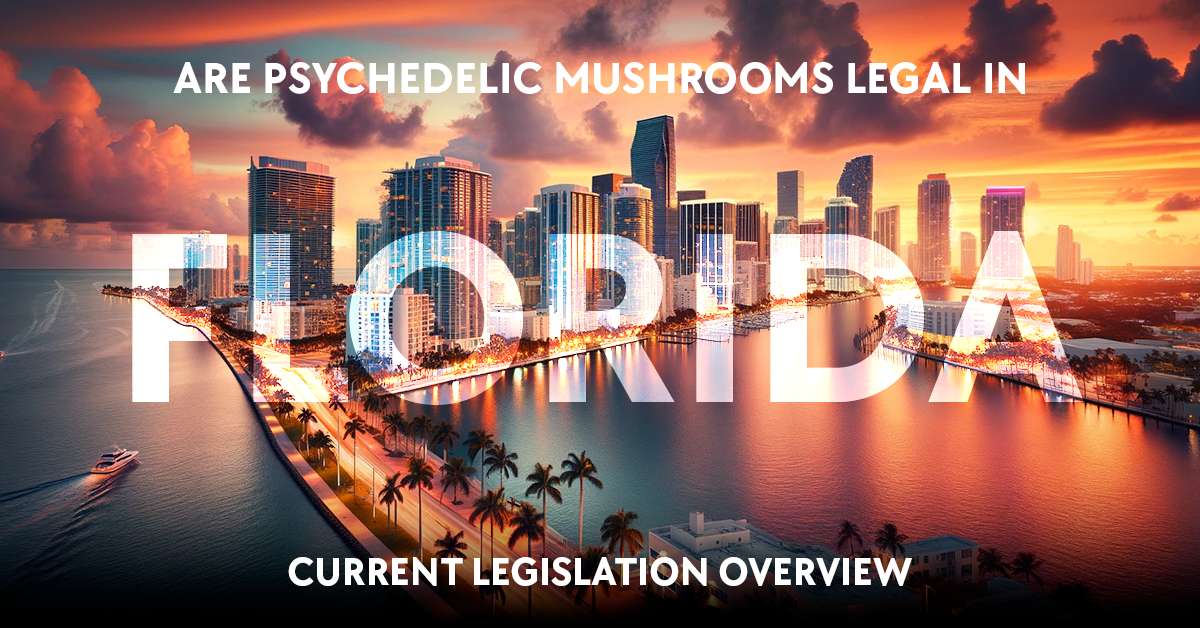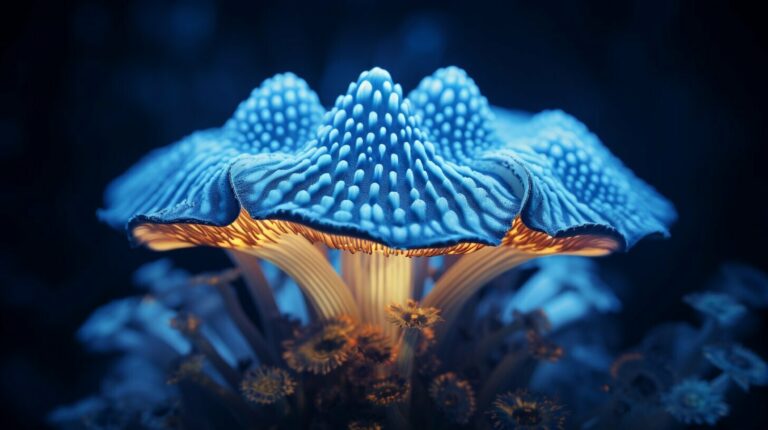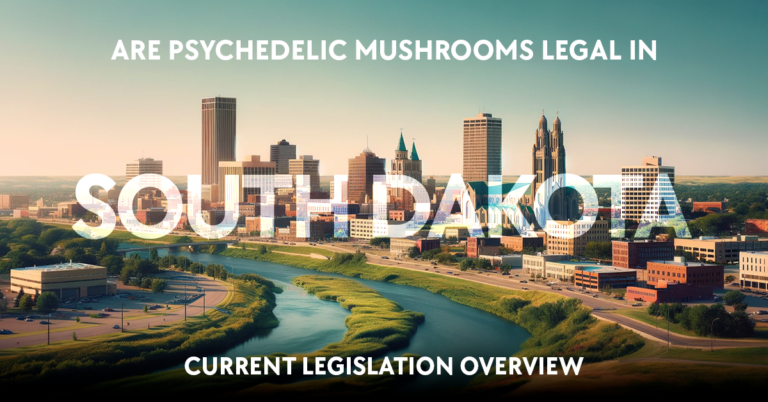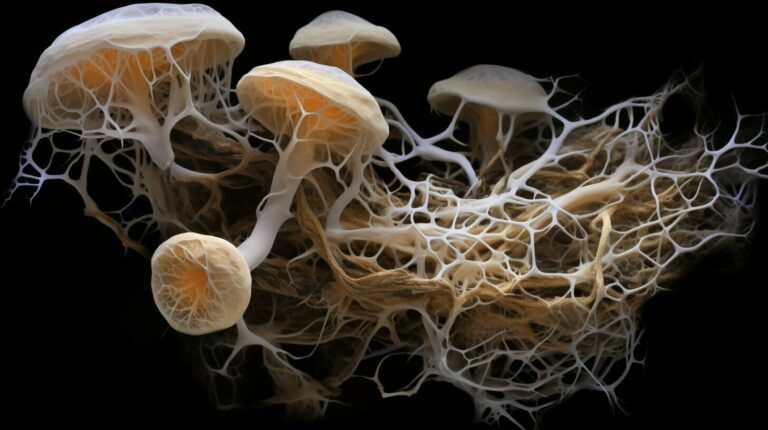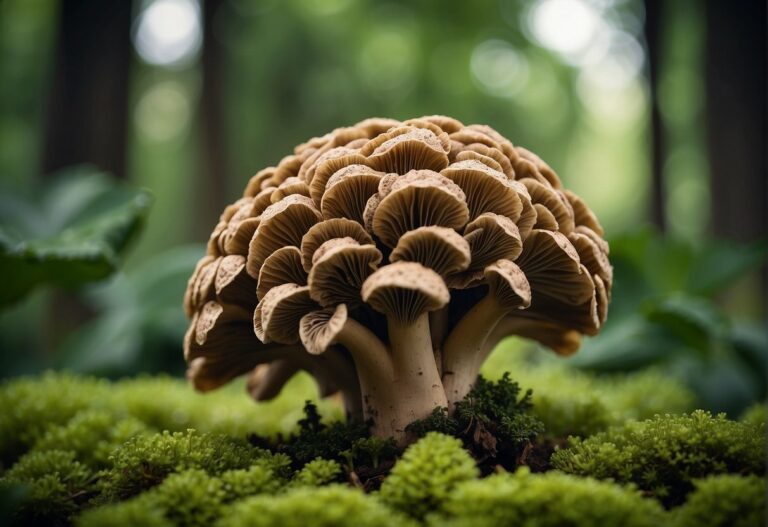In Florida, the legal status of psilocybin, the psychoactive compound found in magic mushrooms, is clear: it is illegal. Possession, sale, or distribution of psilocybin mushrooms is a criminal offense under state law. This means you may face serious penalties if caught with these substances. It’s important to be aware that while some states and cities across the United States have initiated moves to decriminalize or lower the law enforcement priority for psilocybin, Florida currently has not passed any such measures.

However, conversations concerning the legal status and potential therapeutic uses of psilocybin are ongoing. There has been increasing interest in the medical research community regarding the potential benefits of psychedelics for treating mental health conditions. Despite the current restrictions, this interest reflects a growing debate about drug policy and the legal framework surrounding substances like magic mushrooms.
While no legislation has been enacted to change the legal status of psilocybin mushrooms in Florida, it’s essential to stay informed as laws can evolve. For instance, measures similar to Oregon’s psilocybin service initiative have been proposed, hinting at subtle shifts in attitudes towards psychedelic substances and their regulated use. Nonetheless, as it stands, the possession and use of psilocybin mushrooms remain illegal in Florida, and it is important to respect state laws and regulations.
Legal Status of Psychedelic Mushrooms in Florida
Table of Contents
https://www.youtube.com/watch?v=aygbHRk8hso&embed=true
In Florida, psychedelic mushrooms, also known as psilocybin mushrooms, are considered a controlled substance. Your understanding of both federal and state legislation is crucial to comprehending their legal standing.
Federal and State Legislation
Federal Law designates psilocybin as a Schedule I substance under the Controlled Substances Act. This classification deems psilocybin mushrooms to have a high potential for abuse and no accepted medical use, thereby making their manufacture, possession, and distribution illegal. In Florida, State Legislation mirrors this federal stance; psilocybin mushrooms remain illegal under state drug laws.
Penalties for Possession and Sale
In the state of Florida, the Penalties for Possession or Sale of psilocybin mushrooms are severe. Possession of these substances is a third-degree felony, punishable by up to five years in prison. Sale, delivery, or manufacture of psilocybin mushrooms escalates to a second-degree felony, potentially resulting in a punishment of up to 15 years of incarceration.
Decriminalization Efforts
While psilocybin mushrooms are currently illegal in Florida, there have been movements in other states considering the Decriminalized status of these substances, which could influence future changes in Florida. However, as of now, no such decriminalization legislation has been enacted or formally proposed within the state.
Medical and Therapeutic Use

Psychedelic mushrooms, specifically psilocybin, are being investigated for their potential in medical settings to treat a range of mental health conditions. However, in Florida, the legal status of these mushrooms remains under strict regulation.
FDA Approval and Treatment Research
The FDA has designated psilocybin therapy as a Breakthrough Therapy for severe depression, a move which expedites the development and review process of drugs that show substantial improvement over available therapy. Research indicates that psilocybin has potential as a treatment for major depressive disorder, anxiety, PTSD, and addiction. While clinical trials are ongoing, medicinal use of psychedelic mushrooms is not yet authorized by the Florida Department of Health.
Case Studies and Medical Advocacy
Case studies from research institutions suggest that psilocybin therapy can provide long-term relief from mental health conditions. In instances outside of Florida, such as in studies highlighted by New York University, patients have demonstrated significant improvements in symptoms of depression and anxiety post-therapy. Medical advocacy groups are pushing for legal reform, citing the benefits of psilocybin as an adjunct to psychotherapy for treatment-resistant cases.
Comparative Legality in the United States
In the diverse landscape of drug regulation in the United States, the legal status of psychedelic mushrooms varies widely. It is crucial for you to understand these nuances as they have important legal implications.

Other States’ Legal Frameworks
Oregon: You’ll find that Oregon is at the forefront of psychedelic mushroom legislation. As of the latest legislative decisions, Oregon has legalized supervised use of psilocybin, the active compound in psychedelic mushrooms, through the passing of Measure 109. This is a shift towards controlled therapeutic use rather than broad recreational legalization.
California and Texas: Contrasting Oregon, both California and Texas maintain strict prohibitions against the possession, sale, and cultivation of psychedelic mushrooms. However, there are movements and proposed bills advocating for decriminalization, which would represent a significant policy change if passed.
Connecticut and Louisiana: Neither Connecticut nor Louisiana has moved towards legalization or decriminalization. These states have upheld federal classifications, thereby aligning their state legislation with national policy.
Federal vs. State Discrepancies
At the federal level in the United States, psychedelic mushrooms are classified as Schedule I controlled substances, indicating no accepted medical use and a high potential for abuse. This stance creates discrepancies between federal law and state laws, like in Oregon, where state-level policy allows for specific uses of these substances.
You will observe that while decriminalization efforts may shift local law enforcement priorities — as in Denver with its Psilocybin Mushroom Policy Review — such efforts do not alter the federal legal status of the substances. This means while you may not face state penalties in certain jurisdictions, federal law can still be enforced.
Understanding the tension between state and federal law is vital regarding legalization and decriminalization of psychedelic mushrooms. As legislation is an evolving field, keeping abreast of both state and federal changes ensures that you have current and accurate knowledge of the legal landscape.
Psychedelics and Public Perception

Your awareness of psychedelics, such as psilocybin mushrooms, LSD, and marijuana, in the realm of public perception is critical to understanding their legal status. Shifts in cultural attitudes and advocacy have played pivotal roles in transforming opinions about these substances.
Shifts in Cultural Attitudes
In recent years, you’ve likely noticed a change in how psychedelics are viewed culturally. Historically, substances like LSD and marijuana were associated with counterculture movements and faced widespread stigma. Today, there’s a growing body of research suggesting potential therapeutic benefits that challenge past misconceptions. For example, studies suggest that certain psychedelics may be helpful in treating mental health conditions. This shift towards viewing psychedelics through a scientific and medical lens has contributed to changing attitudes, with psilocybin often at the forefront of this reevaluation.
Advocacy and Public Support
Advocates for the decriminalization of psychedelics emphasize personal freedom and the right to explore consciousness without legal repercussions. Your recognition of this growing support is evident as activists work to reframe the conversation around psychedelics from a focus on recreational use to one highlighting their potential medicinal value. Interestingly, some localities have seen movements succeed, such as the opening of a legal mushroom dispensary in Florida, hinting at increasing public support for access to psychedelics under specific conditions. It’s clear that advocacy efforts are integral to the evolving legal landscape of psychedelic substances.
Natural Occurrence and Identification
In Florida, a variety of wild mushrooms can be found, some of which possess hallucinogenic properties. Your ability to accurately identify these species is crucial for legal and safety reasons.
Wild Mushrooms in Florida
Florida’s warm and humid climate creates an ideal environment for the growth of a plethora of wild mushrooms. Various species thrive in this region, particularly in manure-rich pastures and wooded areas. Among these, Psilocybe cubensis, commonly known as “Magic Mushrooms,” are naturally occurring. It’s important to be mindful that while these mushrooms grow in the wild, they are regulated under state law.
Identifying Hallucinogenic Species
When it comes to identifying hallucinogenic species, caution and a thorough understanding of mushroom characteristics are imperative. Hallucinogenic species often have specific features such as a dark spore print or a bluish staining on the stem when handled. However, you should never consume wild mushrooms without a professional identification, as toxic look-alikes pose a significant risk. Remember, the possession and use of Magic Mushrooms are governed by strict regulatory frameworks due to the presence of psilocybin, a controlled substance.
Potential Risks and Legal Consequences
In Florida, while there have been discussions around reforming laws related to psychedelics, it’s important for you to be aware of the potential health risks and the legal consequences associated with the use and distribution of psychedelic mushrooms.
Health Concerns and Risks
The use of psychedelic mushrooms carries the risk of possible health concerns, including the potential for toxicity from chronic use. Reactions can vary widely from individual to individual, and negative experiences, often referred to as “bad trips,” can lead to severe anxiety, paranoia, and psychotic episodes. In some cases, pre-existing mental health conditions can be exacerbated, necessitating medical intervention.
Legal Risks of Cultivation and Trafficking
Cultivating, possessing, or trafficking psychedelic mushrooms in Florida can lead to serious legal repercussions. These actions are considered felonies under both state and federal law. You could face:
- Felony charges: With varying degrees of penalties depending on the amount.
- Severe penalties: Including prison time, hefty fines, and a permanent criminal record.
- Police scrutiny: Law enforcement agencies actively target the illegal drug trade, and being associated with it can lead to increased police attention.
If caught, you could become part of the broader drug problem the legal system is attempting to manage. Despite ongoing conversations regarding reform, the current laws are in effect, and it is essential that you are fully aware of these before deciding to grow or distribute psychedelic mushrooms.
Economic and Societal Impact
In exploring the economic and societal impact of psychedelic mushrooms in Florida, you will find that the implications extend beyond public health concerns to touch on the dynamics of the criminal justice system and the legislative environment. The ongoing debate around the legalization of substances like psilocybin mushrooms has galvanized action and reactions from various sectors, including legislators in the Florida House, and has the potential to leave lasting marks on both the economy and community.
Impact on Health System
Economic Impact: The introduction of psychedelic mushrooms for medicinal purposes could lead to shifts in the funding and resources allocation within Florida’s health system. Studies examining the therapeutic use of these substances suggest potential reductions in mental health treatment costs if proven effective for conditions historically resistant to treatment.
Societal Impact: Beyond direct cost savings, your community’s overall health could improve with innovative treatments available, possibly leading to increased productivity and a decrease in disability-related economic drains.
Influence on Criminal Justice System
Economic Impact: With any changes in legislation, like the proposals for psilocybin policy reforms in Florida, there’s a direct impact on the criminal justice system. Costs associated with incarceration and law enforcement could decrease with the decriminalization of psychedelic mushrooms, potentially freeing up resources for other areas.
Societal Impact: Legislation changes would also affect societal views on drug use and addiction, moving towards a treatment-over-punishment model, which can alter the long-term societal outcomes for individuals affected by substance use disorders.
Psychoactive Substances Comparison
In this section, you will discover how psychedelic mushrooms stack up against other psychoactive substances and understand the nuances of legal and chemical distinctions that set them apart.
Psychedelic Mushrooms Vs. Other Substances
Psychedelic mushrooms, primarily species containing psilocybin, offer a distinct hallucinogenic experience compared to substances like MDMA and Ketamine. While MDMA, commonly known as Ecstasy, is renowned for its empathogenic effects that heighten sensations of emotional connectedness, mushrooms often induce a more introspective trip, with alterations in sensory perception and thought. Unlike Ketamine, which is used medically for anesthesia and often recreationally for its dissociative properties, psychedelic mushrooms are not typically used in a clinical setting, though research on their therapeutic potential is growing.
The experience with Ayahuasca and DMT, both of which can produce profound psychedelic effects, is often described as more intense and shorter-lived than that of mushrooms. However, Ayahuasca is taken as a brew and has a significant cultural and spiritual context, particularly in South American rituals. DMT, the active component in Ayahuasca, is also found in other plants and can be synthesized in a lab.
Legal and Chemical Distinctions
The legal status of psychedelic mushrooms is more complex when compared to other substances. In Florida, as highlighted by the Florida state law, the sale or possession of Psilocybe mushrooms is illegal. However, the purchase of mushroom spores, which do not contain psychoactive substances, is legal for educational and research purposes, unlike Hemp Dispensary products, which are more widely legal following the legalization of hemp-derived products containing less than 0.3% THC.
Chemical differences are important as well. MDMA and Ecstasy act primarily as stimulants affecting serotonin levels, leading to their classification as entactogens or empathogens. Ketamine is a dissociative anesthetic, affecting the receptor for the neurotransmitter glutamate. In comparison, psilocybin from mushrooms works on serotonin receptors, particularly the 5-HT2A receptor, which is also targeted by other classic psychedelics like LSD.
Your understanding of these contrasts is essential whether considering their effects, therapeutic use, cultural significance, or legal standing.
Frequently Asked Questions
In this section, you’ll find accurate answers to common inquiries concerning the legal aspects of psychedelic mushrooms in Florida.
What is the current legal status of psilocybin mushrooms in Florida?
Psilocybin mushrooms remain illegal in Florida, categorized as a Schedule I controlled substance, indicating they have a high potential for abuse and no accepted medical use.
Can individuals possess or use psilocybin mushrooms for personal use without facing legal repercussions in Florida?
No, possession or use of psilocybin mushrooms for personal use is not allowed in Florida and it can lead to legal repercussions.
Are there any sanctioned therapeutic or medicinal uses of psychedelic mushrooms permitted in Florida?
Currently, Florida does not sanction any therapeutic or medicinal uses of psychedelic mushrooms within the state.
Has there been any recent legislation attempting to change the legal status of psilocybin in Florida?
Recent legislative proposals in Florida have echoed those in other states, pushing for policy reform on psilocybin, but no new laws have been enacted to date.
What are the potential penalties for the possession or distribution of psychedelic mushrooms in Florida?
Penalties for possession or distribution of psychedelic mushrooms in Florida range from fines to incarceration, depending on the quantity and intent proven in court.
Are there any active movements or organizations advocating for the decriminalization or legalization of psilocybin in Florida?
Yes, there are active advocacy groups in Florida pushing for the decriminalization and legalization of psilocybin, reflecting a trend toward drug policy reform.

